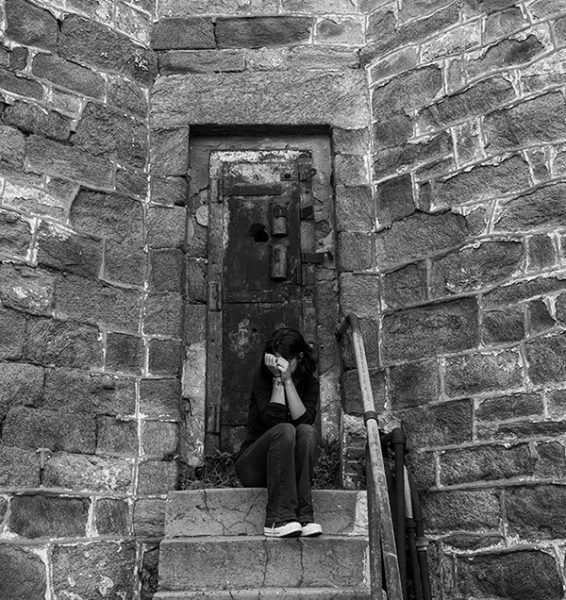The Fight for LGBTQ+ Rights in South Korea
February 7, 2018
Loona, a twelve-member pre-debut girl musical group, looks like a normal Korean pop group. Each member has gotten a solo to introduce themselves before they all perform together, but Loona’s record label, Blockberry Creative, has found itself in hot water. The last two members of the group have released solo songs with apparent homosexual undertones, and both music videos for each song uses many instances of Christian imagery dealing with the Garden of Eden. There’s only one problem: much of the South Korean public is homophobic.
For years, homosexuality and other kinds of sexuality and gender expression have been considered a taboo subject in Korea. Gay marriage, like in many countries in Asia, is not recognized either. According to the Pew Research Center, 57% of South Koreans thought that homosexuality was “unacceptable.” In the past year, the South Korean government has even gone through a military crackdown of gay soldiers, in which investigators inquire about military member’s sexual histories, search phones without warrants, and scour gay dating apps. The South Korean president, Moon Jae-in, has even stated that he opposes homosexuality. Though he has apologized for his past comments after backlash, his audience has not. Many conservative Christian groups who backed Moon Jae-in have only pushed an anti-LGBQT agenda. Additionally, in 2017, the South Korean birth rate has hit an all-time low. Though the government has spent over seventy billion dollars trying to make citizens have children, many South Koreans blame the extremely low birth rate on the LGBQT community.
The two Loona members that are causing a stir are Ha Soo-young, who goes by the stage name “Yves,” and Kim Jiwoo, who goes by the stage name “Chuu.” Yves’s solo, titled “new,” is, according to Blockberry Creative, about Yves asking “Is it really a bad thing to disobey God?” and, “If someone has already decided our fate, wouldn’t it be a better life to stand up and against that fate?” The music video for “new” begins with Yves dancing, dressed in white, on a rooftop studio, what fans most speculate to be a representation of the Garden of Eden. However, just before the song gets to the chorus, Yves takes a bite of a red apple hidden behind her back. Apples are used in almost every frame of the video, and are what people speculate is a symbol of Yves’s “sin,” or her alleged homosexuality.
At the end of the video, it shows Yves rollerskating, laughing, and smiling with another member of Loona, Vivi, who also happens to be a woman. The lyrics of “new” are bright, bold, and focused on being yourself “no matter what hardships, pain, and frustration faces [you,]” Blockberry said. Although not stating it explicitly, many K-Pop superfans have taken the symbolism in her music video to say that Soo-young, or at least the character, Yves, falls somewhere in the LGBTQ spectrum.
However, Chuu’s solo project, titled “Heart Attack,” was a lot less complex when it comes to symbolism. “Heart Attack,” unlike “new,” was not soultronica, but a cute interpretation of having a same-sex crush. In the music video for Chuu’s single, Chuu is seen wearing the same clothes as Yves, following Yves around, practicing the choreography to Yves’s “new,” and replicating several scenes from Yves’s own solo music video. Like “new,” “Heart Attack” uses several instances of forbidden fruit imagery, which is still believed to symbolize homosexuality. However, unlike the apples in Yves’s music video, Chuu’s apple is green.
Like Yves, she carries it around everywhere, but it appears that Chuu isn’t really aware of it. In one frame of the music video, Chuu is seen getting angry at her apple, and in several scenes, offering that very apple as a gift to Yves. Loonatics, or Loona’s fandom, believe that Chuu’s actions in her music video portray her as a closeted gay woman or at least a gay woman who doesn’t know that she is in fact, gay. Right before Chuu sings the last chorus of the song, Chuu takes a moment to look at her green apple, and bites it, turning it red, signifying that Chuu acknowledges and accepts who she is, and doesn’t need to act like she just wants something platonic between her and Yves. The last few frames show Yves and Chuu dancing and having a good time together, until Chuu is awoken by Yves, and Chuu’s apple is still green, making it seem as if the majority of “Heart Attack” was all but a dream.
Only a few Korean celebrities have spoken about their support for the LGBQT community, such as the late Kim Jong-hyun, a former member of boy band SHINee, or Kwon Bo-ah, known professionally as soloist BoA, who even performed at 2009 San Francisco Pride Parade. However, though a handful are clear about their beliefs, many Korean celebrities who claim to support the LGBQT community are quite vague in their statements. For example, Kim Taeyeon, main vocalist of K-Pop group Girls’ Generation, has not outright stated that she is an ally but posted a photo of a rainbow to her Instagram. Though many celebrate Korean celebrities who do anything for the LGBQT community at all, many view actions such as these as harmful.
“Too many celebrities want to have their cake and eat it too,” says a source. “They want to still be seen as perfect in the eyes of the public, but don’t want to do the things that would help minorities, even if it puts a stain on their career.”
Like many Korean celebrities and record labels, Blockberry Creative has been under severe criticism from far-right Christian groups, but it’s also been criticized by members of the gay community and allies as well. Despite the “representation” in Loona’s two newest music videos, a portion of the community suspects Blockberry is just pandering to the LGBQT audience, fetishizing same-sex relationships, and behaving as many other Korean celebrities and record labels do when it comes to the rights and issues of gay Koreans, by leaving vague interpretations of videos and statements, instead of just saying that a character or person was on the spectrum outright.
The fetishization of K-Pop idols is not a new concept at all. Numerous Korean record labels use the ideas of “skin-ship,” or the ‘platonic’ physical attention between two same-sex K-Pop idols as a way to sexualize group members and gain popularity, views, and fans.








Orbit • Feb 23, 2020 at 5:29 am
thanks for putting their name out there! :,)
Your writing’s really captivating!! :))